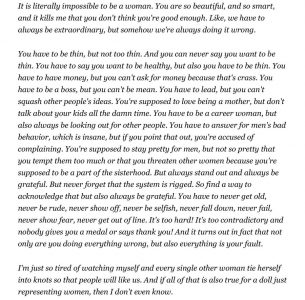This is only a working theory or, if you will, an undeveloped premise, but the theory is that Greta Gerwig‘s Barbie and Chantal Akerman‘s Jeanne Dielman, 23 quai du Commerce, 1080 Bruxelles drink from the same well water. Simmering frustration and anger at men, resulting in a sense of feeling trapped or stuck and needing to redefine or break through.
I won’t be burrowing into this idea any further (or at least not today), but the analogy hit me early this morning and I’m convinced that despite Barbie and Jeanne Dielman being hugely dissimilar in many ways, there’s a certain validity to saying “they aren’t that far apart.”

Posted on 12.2.22: In the wake of Chantal Akerman‘s Jeanne Dielman, 23 quai du Commerce, 1080 Bruxelles (’75) topping the BFI Sight & Sound poll, I had to give it another shot. So I watched it on the Criterion Channel, on my Macbook Air. Most of it, I should say. I made it through the first 90 minutes the hard way (i.e., without cheating), but then something inside me began to wither and crumple, and I began to watch ten-minute portions. But I missed nothing.
Jeannie Diulman is a statement, all right. Three hours and 21 minutes of torpor, tedium and depression. Such a sad, suffocating and listless film. (Yes, that’s the point but c’mon.) It’s about a life of a prim and proper sex worker (Day of the Jackal’s Delphine Seyrig) that’s mainly about servitude and the renunciation of joy and the suppression of the spirit. A film about regimented motherhood and the raising of a dull, homely, tragically obedient son whose life is doomed to the same kind of repetition, the same dutiful stiflings and silences and submissions.
Seyrig is Spartacus in the kitchen — a sex-hating sex gladiator without a sword. A slave who endlessly prepares meals and adheres to regularity, regularity and more regularity. She never breaks out of Capua, so to speak, and we never see her having sex except at the very end, and in an odd, ugly and curious way at that. But we do see her prepare many dinners.














